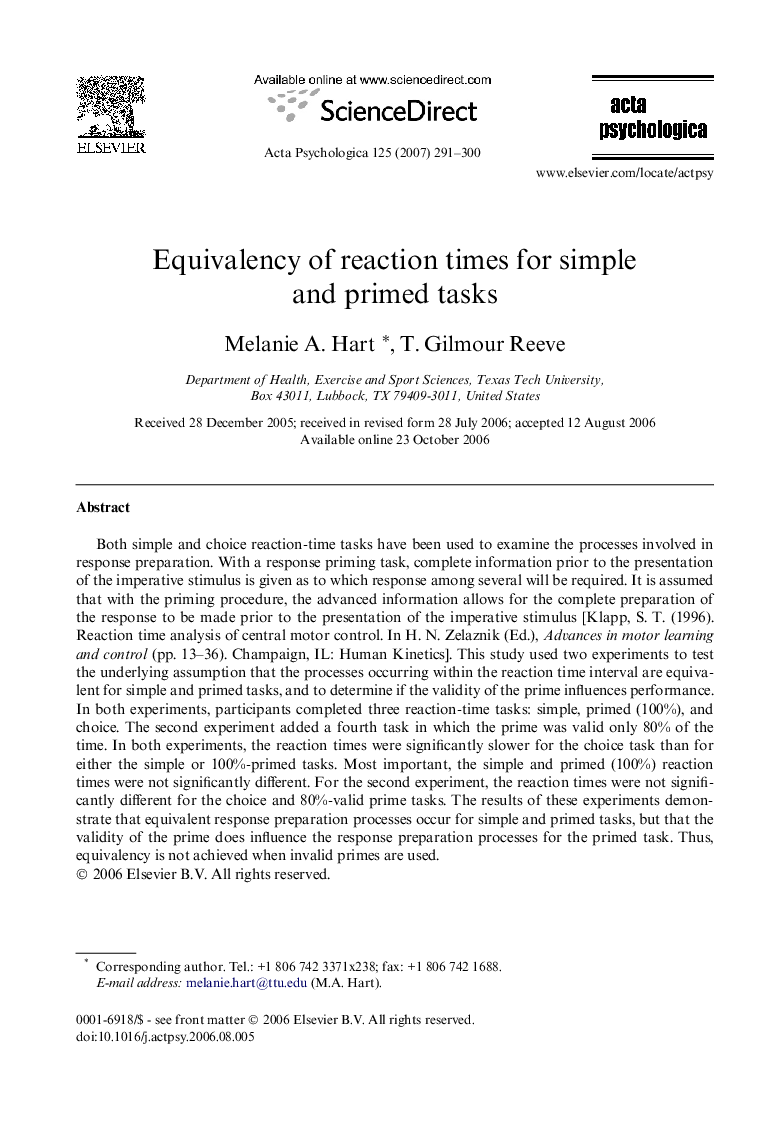| کد مقاله | کد نشریه | سال انتشار | مقاله انگلیسی | نسخه تمام متن |
|---|---|---|---|---|
| 920676 | 920311 | 2007 | 10 صفحه PDF | دانلود رایگان |

Both simple and choice reaction-time tasks have been used to examine the processes involved in response preparation. With a response priming task, complete information prior to the presentation of the imperative stimulus is given as to which response among several will be required. It is assumed that with the priming procedure, the advanced information allows for the complete preparation of the response to be made prior to the presentation of the imperative stimulus [Klapp, S. T. (1996). Reaction time analysis of central motor control. In H. N. Zelaznik (Ed.), Advances in motor learning and control (pp. 13–36). Champaign, IL: Human Kinetics]. This study used two experiments to test the underlying assumption that the processes occurring within the reaction time interval are equivalent for simple and primed tasks, and to determine if the validity of the prime influences performance. In both experiments, participants completed three reaction-time tasks: simple, primed (100%), and choice. The second experiment added a fourth task in which the prime was valid only 80% of the time. In both experiments, the reaction times were significantly slower for the choice task than for either the simple or 100%-primed tasks. Most important, the simple and primed (100%) reaction times were not significantly different. For the second experiment, the reaction times were not significantly different for the choice and 80%-valid prime tasks. The results of these experiments demonstrate that equivalent response preparation processes occur for simple and primed tasks, but that the validity of the prime does influence the response preparation processes for the primed task. Thus, equivalency is not achieved when invalid primes are used.
Journal: Acta Psychologica - Volume 125, Issue 3, July 2007, Pages 291–300